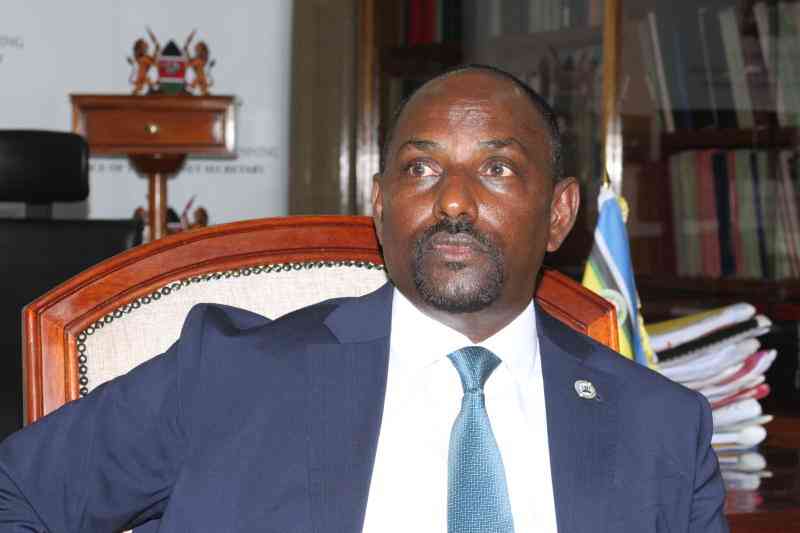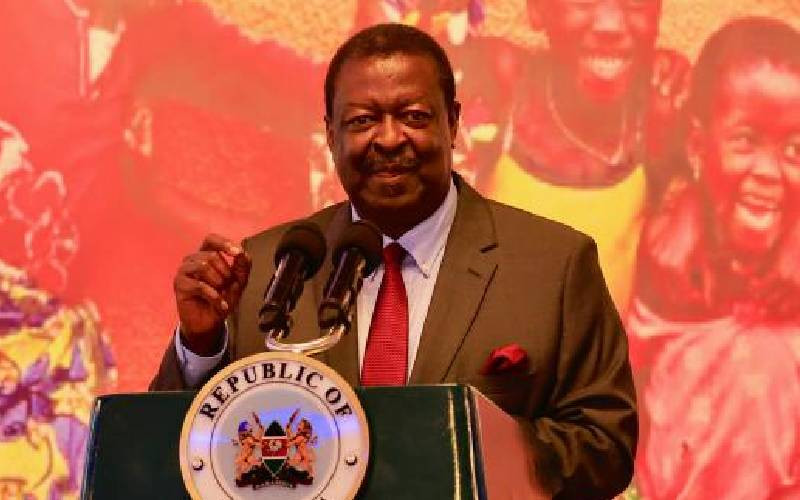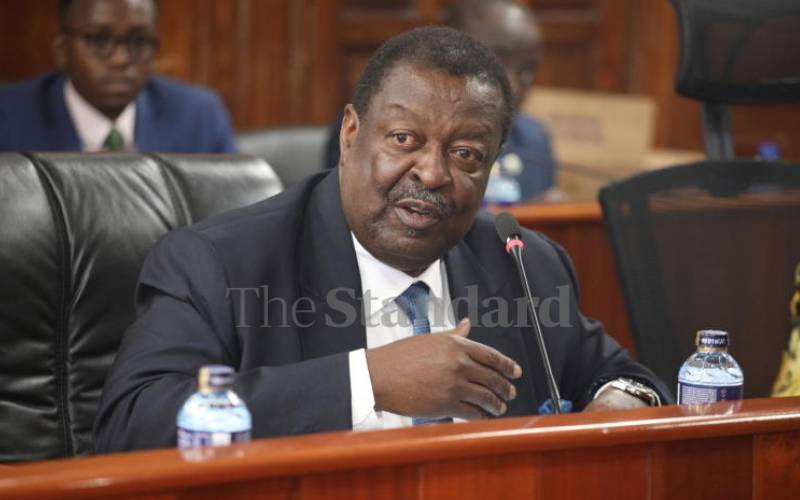A parliamentary committee has allowed the House to debate a bill seeking to replace the anti-corruption agency with a powerful office that has powers to prosecute.
If enacted, the bill will amend the Constitution to disband the Ethics and Anti-Corruption Commission, whose commissioners have been in office for only 100 days.
The proposed law seeks to create a more powerful office of the Director of Ethics and Prevention of Economic Crimes that will have powers to direct investigations and prosecute cases.
The Constitution of Kenya (Amendment) Bill, 2016, says the director will direct the Inspector General of Police to investigate any information or allegations of corruption, economic crimes and any violation of Chapter Six of the Constitution and "the Inspector General shall comply with any such direction".
In one of the bold proposals, the director will no longer rely on the Director Public Prosecutions to prosecute corruption cases and will proceed to court after investigations. If passed, the bill will throw into limbo the tenure of the current EACC Chairman Philip Kinisu and his commissioners Dabar Abdi, Paul Mwaniki, Sophia Lepuchirit and Rose Mghoi, because the law demands the holder of the office shall have the qualification of a High Court Judge.
Yesterday, the National Assembly's Justice and Legal Affairs Committee led by Ainapkoi MP Samwel Chepkonga approved the bill for publication. It is expected to be submitted to the House after the long recess.
The National Assembly will be expected to prescribe the procedure of nomination of the director, who will be approved by Parliament and appointed by the President.
The committee said the legislation is needed to ensure the establishment of a strong, independent and adequately constituted agency that enforces Chapter Six of the Constitution on Leadership and Integrity and investigates and prosecutes economic crimes.
It seeks to enforce the constitutional provisions on leadership and integrity by ensuring timely investigation, prosecution and determination of acts of corruption and economic crimes.
The new office will have 'a lean and sharper anti-corruption weapon that replaces the bureaucratic commission, which has often been hobbled by internal supremacy battles and pressures as recently experienced'.
The new office will, according to the bill, have investigatory and prosecutorial powers as well as the status under chapter 15 of the Constitution on the Independent Office.
The committee, in the bill provides for the transition from the operations of the Ethics and Anti-Corruption Act, 2011 to the office of the Director of Ethics and Prevention of Economic crimes once appointed.
Under the bill, the director shall have the qualifications similar to those of a High Court judge and will serve for a single non-renewable term of nine years.
The director will have the State powers to continue or discontinue a case in court at any stage before the judgement is delivered. However, they will require the permission of the court.
The bill notes the director will not require any consent from any person or authority for the commencement of criminal proceedings, neither will the officer be under the control of anyone or authority.
Stay informed. Subscribe to our newsletter
Under the bill, investigation and legal proceedings undertaken with regard to the enforcement of chapter six of the Constitution shall be continued by director of Ethics and Prevention of Economics Crimes.
Kinisu's team was appointed in November last year and has only been in office for four months, taking over from Mumo Matemo and commissioners Irene Keino and Jane Onsongo, who were hounded out of office because of supremacy battles in the commission.
EACC is investigating hundreds of cases involving top officials including governors, MPs and parastatal chiefs. However, the commission is required to complete investigations and forward a file with recommendations to DPP Keriako Tobiko, who has the final say. The DPP approves the recommendation to prosecute, rejects such or orders further investigations before taking over prosecution.
 The Standard Group Plc is a
multi-media organization with investments in media platforms spanning newspaper
print operations, television, radio broadcasting, digital and online services. The
Standard Group is recognized as a leading multi-media house in Kenya with a key
influence in matters of national and international interest.
The Standard Group Plc is a
multi-media organization with investments in media platforms spanning newspaper
print operations, television, radio broadcasting, digital and online services. The
Standard Group is recognized as a leading multi-media house in Kenya with a key
influence in matters of national and international interest.
 The Standard Group Plc is a
multi-media organization with investments in media platforms spanning newspaper
print operations, television, radio broadcasting, digital and online services. The
Standard Group is recognized as a leading multi-media house in Kenya with a key
influence in matters of national and international interest.
The Standard Group Plc is a
multi-media organization with investments in media platforms spanning newspaper
print operations, television, radio broadcasting, digital and online services. The
Standard Group is recognized as a leading multi-media house in Kenya with a key
influence in matters of national and international interest.








